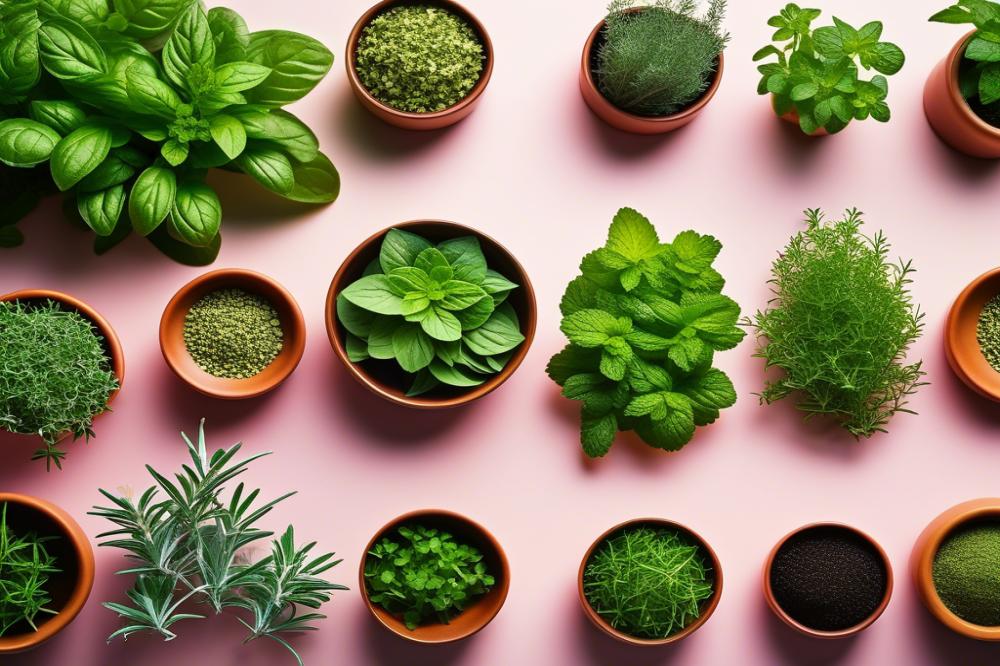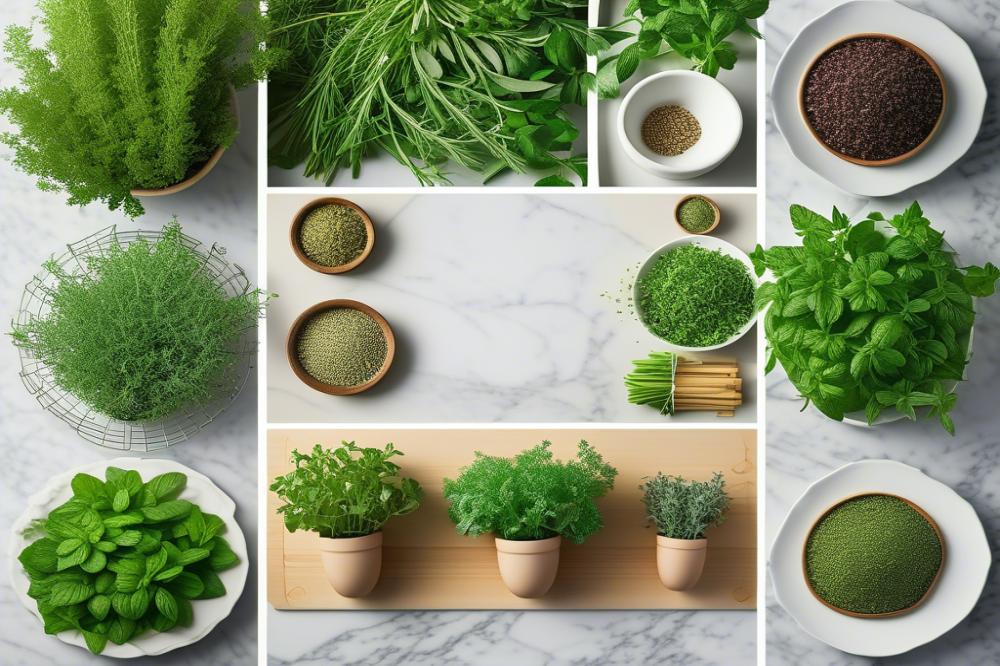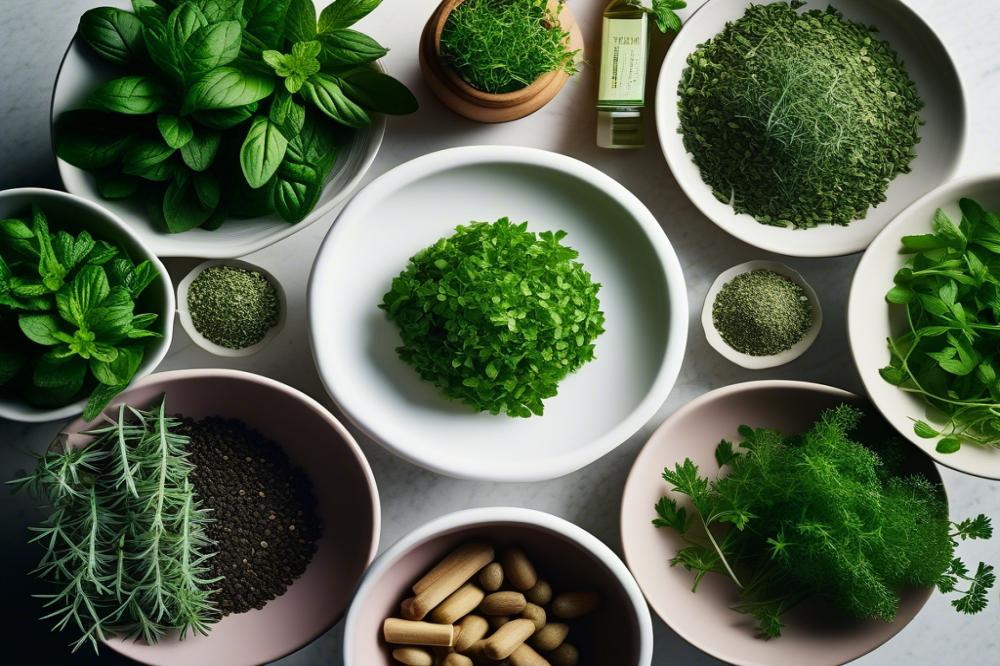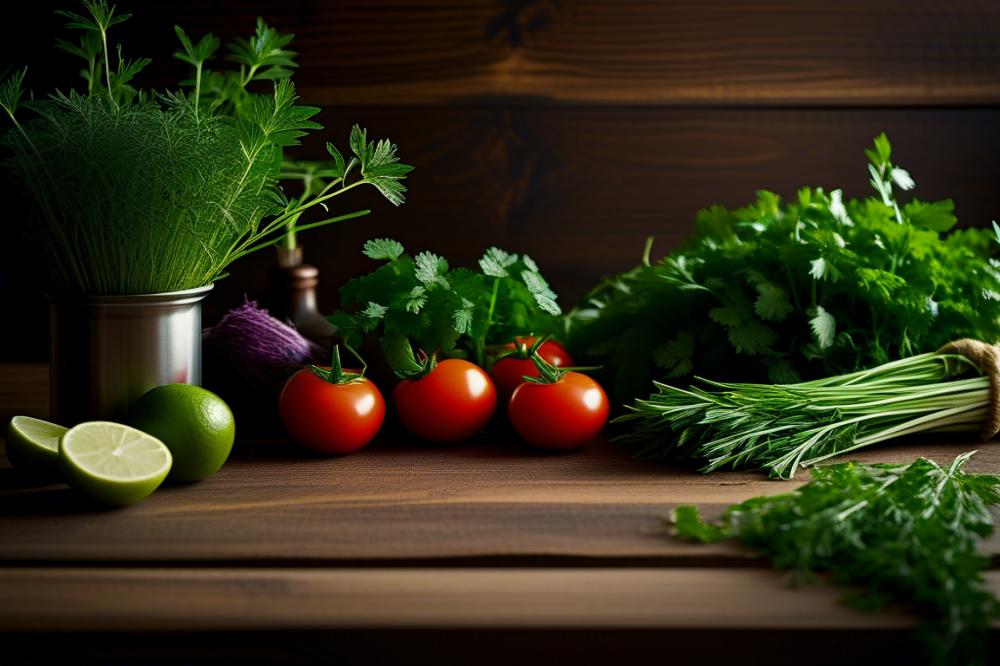The Art of Using Fresh Herbs in Traditional Greek Cooking
Greek cuisine stands out for its vibrant flavors and wholesome ingredients. Fresh Herbs play a vital role in bringing out the unique tastes of dishes. Common additions like oregano, dill, and mint transform simple meals into flavorful experiences. These herbs not only enhance flavor but also connect diners to a rich cultural heritage.
Culinary traditions in Greece vary by region. Each area boasts its own specialties based on local ingredients and cooking techniques. In the coastal regions, for example, fish and herbs often make an appearance in recipes, while mountainous areas may rely more on robust flavors from thyme and wild greens. These regional differences showcase the adaptability of Greek Cooking and the importance of using seasonal, fresh produce.
Traveling through Greece offers a culinary adventure that is unforgettable. Visitors often find themselves enchanted by the vibrant markets, filled with fresh herbs and local ingredients. A stroll through these bustling streets can inspire anyone to try their hand at Traditional recipes. Whether you’re savoring a plate of grilled lamb marinated in herbs or enjoying a refreshing tzatziki sauce, the essence of Greek cooking is present in every bite. Fresh herbs truly define the flavors of Mediterranean cuisine and create a connection to the country’s rich history and diverse landscapes.
Fresh Herbs in Traditional Greek Cooking

In Mediterranean cuisine, the use of fresh herbs is not just common; it’s vital. These ingredients play a crucial role in defining the flavors of numerous dishes. Greek cooking, in particular, showcases an array of herbs that bring a burst of freshness and depth to Traditional recipes. Without these herbs, many meals would lack their distinctive character.
Commonly Used Herbs
Several herbs regularly appear in Greek kitchens. Oregano stands out as a favorite, often used in marinades and tomato sauces. Dill adds a bright note to dishes like tzatziki and various seafood preparations. Mint finds its place in salads and refreshing dips. Parsley is frequently chopped and sprinkled over a dish, providing color and flavor. Basil can add a sweet touch, especially in sauces and salads. Thyme complements roasted meats beautifully, making it a staple in many recipes.
Flavor Enhancement
These herbs do more than merely add color to plates. They enhance flavor in many remarkable ways. A sprinkle of oregano can turn a simple vegetable dish into something memorable. Dill adds a refreshing twist, making dishes feel lighter. Mint offers an unexpected sweetness that can elevate appetizers. Parsley provides a subtle bitterness that balances rich flavors. Basil can brighten a dish with its aromatic qualities. Thyme delivers an earthy note that grounds many meals.
Seasonal Availability
Selecting fresh herbs relies heavily on their seasonal availability. In summer, gardens overflow with basil, making it the perfect time for salads and sauces. Oregano and mint are also abundant during warmer months. Winter often limits selections, but hearty herbs like thyme and dill can thrive. Choosing the right herb at the right time ensures fresh flavors all year round, contributing to vibrant and delicious meals.
Traditional Recipes Featuring Fresh Herbs

Greek cuisine is rich with flavors, largely due to its use of herbs. Many iconic dishes highlight the balance of ingredients and the careful application of herbs. This section explores notable traditional recipes that showcase the essence of Mediterranean cuisine.
Greek Salad with Parsley and Dill
A classic Greek salad is more than just tomatoes and cucumbers. Fresh parsley adds a vibrant touch, while dill enhances the overall taste. To make it, cut ripe tomatoes and crisp cucumbers into bite-sized pieces. Include slices of red onion and flavorful kalamata olives. Sprinkle a handful of chopped parsley and dill on top for the best flavor enhancement. Dress it with a mixture of olive oil and vinegar. Serve chilled for a refreshing side dish.
Roasted Lamb with Oregano and Thyme
Lamb holds a special place in Greek cooking, especially when roasted to perfection. A blend of oregano and thyme marries beautifully with the meat. Start by marinating the lamb with olive oil, crushed garlic, and generous amounts of both herbs. Allow the meat to soak up the flavors for several hours. Then, roast it in the oven until tender and golden brown. This dish is often served at celebrations and brings a taste of tradition to any meal.
Tzatziki Sauce with Dill and Mint
No Greek meal feels complete without a creamy tzatziki sauce. This dip is famous for its refreshing qualities and pairs well with many dishes. Begin with Greek yogurt as your base. Grate fresh cucumber and squeeze out the excess water, adding it to the yogurt. Chopped dill and a hint of mint lend a unique zest. Mix in minced garlic for an additional kick. This sauce complements grilled meats beautifully, adding a refreshing twist.
Stuffed Grape Leaves (Dolmades) with Parsley and Mint
Dolmas are another staple that showcases the use of fresh ingredients. These stuffed grape leaves are filled with rice, meat, and a blend of herbs. Parsley and mint are the stars of this dish. Use sautéed onion and ground meat to bind everything together. Roll each leaf around a spoonful of the mixture, creating neat little packages. Cook them in a pot with lemon juice and olive oil until tender. The result is a flavorful appetizer that highlights the harmony of taste in Greek fare.
Cooking Techniques to Incorporate Fresh Herbs

Using fresh herbs in traditional recipes is vital for enhancing flavor in Mediterranean cuisine. Various methods exist for preparing these ingredients, including chopping, bruising, and infusing. Each technique has its purpose and can dramatically change the dish’s flavor profile.
Methods of Using Fresh Herbs
Chopping herbs like parsley and basil releases essential oils, contributing to a fragrant aroma. Bruising herbs such as mint or thyme helps to extract their full flavor. Infusing oils or vinegar with herbs can create a seasoning that elevates any meal.
Timing for Adding Herbs During Cooking
Timing is crucial when adding herbs. Some, like oregano and dill, benefit from longer cooking times, allowing their flavors to meld with other ingredients. Others, such as basil and mint, should be added at the end of the cooking process to maintain their bright, fresh taste.
Pairing Herbs with Different Ingredients
Pairing herbs with various ingredients creates balance in dishes. For example, oregano complements roasted vegetables beautifully, while dill works well with fish. Mixing parsley with garlic can enhance a variety of sauces, showcasing the versatility of these flavorful additions.
Techniques for Preserving Fresh Herbs
Preserving fresh herbs can extend their life and usefulness in the kitchen. One way is to dry them, locking in flavors for later use. Alternatively, freezing herbs in oil can create a ready-to-use ingredient that adds flair to meals. Another option is making herb-infused ice cubes, ideal for seasoning soups during winter months.
Exploring Greek Markets and Herb Cultivation

Visiting local markets in Greece is an experience like no other. Vendors proudly display vibrant bunches of herbs. The smell of Oregano and Mint fills the air, enticing visitors. Stalls overflow with fresh produce, and the colors are mesmerizing. Shoppers chat animatedly, sharing tips about the best cooking techniques. In this lively environment, every herb tells a story.
Many rural areas in Greece have preserved traditional herb cultivation practices. Families grow Parsley, Thyme, and Basil in their gardens. This process connects generations. Farmers often share how these herbs flourish in the Mediterranean climate. It is not merely about growing plants; it’s a way of life that reflects their culture. They teach that patience and love for the land yield the best results.
Stories from local farmers add depth to this experience. One farmer recounted a season when Dill was particularly bountiful. He spoke about how the community came together for the harvest. Chefs eagerly gather fresh herbs to infuse their dishes with rich flavors. The stories illustrate the bond between the earth, the herbs, and the people. Each harvest day is an event, filled with laughter and hard work.
Transporting home herbs creates excitement for culinary adventures. Once back home, the vibrant colors and scents transform kitchens. A simple dish becomes extraordinary with the right touch of herbs. Oregano enhances tomato sauce, while Dill brings life to salads. Recipes are passed down through families, each herb playing a crucial role. Cooking with these herbs is a journey through Mediterranean cuisine.
The Health Benefits of Fresh Herbs in Cooking
Greek cuisine is not only delicious but also incredibly healthy. Many common herbs bring a wealth of nutrients to the table. Oregano, for instance, is rich in antioxidants, which help fight free radicals in the body. Dill offers a high amount of vitamin C, while parsley provides significant levels of vitamins A, C, and K. Basil is known for its anti-inflammatory properties, creating a notable impact on overall health.
Medicinal properties also shine through in these flavorful herbs. Mint is often associated with aiding digestion and soothing upset stomachs. Oregano is not just an herb for seasoning; it’s also thought to have antimicrobial effects. These attributes make it a staple in many traditional recipes, enhancing not just flavor, but also wellness in every bite.
Using herbs plays a critical role in promoting a wholesome Mediterranean diet. This style of eating emphasizes fresh ingredients, and herbs are the stars of this culinary approach. Cooking techniques often focus on using these vibrant plants, from simple garnishes to hearty flavor enhancements. Thyme, for example, adds depth to roasted meats and vegetables, while a sprinkle of fresh dill can brighten up a savory yogurt dip.
Incorporating herbs like basil and oregano into daily meals supports a balanced lifestyle. The Mediterranean cuisine principle revolves around fresh, nutritious foods paired with healthy fats. This dietary pattern has been linked to lower risks of chronic diseases. Clearly, the art of using herbs goes beyond just taste; it aligns perfectly with healthy living.
Final Thoughts on Herbs in Greek Cooking
Utilizing herbs in Greek dishes highlights the beauty of culinary traditions. Their vibrant flavors elevate meals and connect cooks to the rich history of Mediterranean cuisine. Each herb brings its own character to traditional recipes, making every dish an experience rather than just a meal.
Home cooks should feel inspired to explore the world of herbs. Experimenting with these ingredients can open the door to new flavors and aromas. Whether it’s a sprinkle of dill in a salad or the warmth of oregano in a stew, these simple additions can transform everyday cooking.
Traveling through the flavors of Greece allows for a deeper understanding of its food culture. Culinary adventures offer a chance to see first-hand how locals incorporate these botanicals into their daily meals. With every taste, one can truly appreciate the art and passion behind Greek cooking.
Incorporating herbs into cooking is not just about flavor; it creates an entire experience that can bring joy and satisfaction. Now is the perfect time to start your own journey into the heart of Greek culinary traditions.



